Fiammetta Cosci is the winner of the Alison Creed Award 2023. Congratulations!
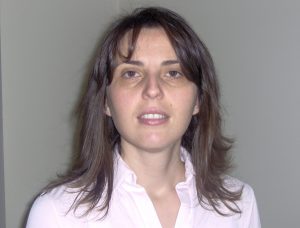
Fiammetta Cosci
At the 2023 EAPM Conference in Wroclaw Prof. Cosci will give a lecture ‘Assessment in psychosomatics: the contribution of clinimetrics’ as well as a masterclass.
Interview with Professor Cosci
held on 28/11/2022 by Susanne Fischer

Fiammetta Cosci
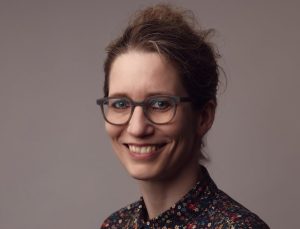
Susanne Fischer
Dear Professor Cosci, many congratulations to you for winning the Alison-Creed-Award for your lifetime achievements in psychosomatic medicine and consultation liaison psychiatry.
Thank you very much. It really is such a great honour, and I am pleased that the committee found me and my work worthy of winning this prize.
May start out by asking you how you became involved in psychosomatic medicine in the first place?
I was trained as a psychiatrist and used to work in general hospitals and psychiatric wards. I remember that I always tried to devote time not just to the biological treatment of patients, but also to interviewing them. Even though the health system obliged me to only take 15 minutes per patient visit (which is nothing), I devoted some additional time to patients when I was on call to interview and assess them comprehensively. I was never comfortable with this time window of just 15 minutes myself, so I thought the same must be true of the patients.
And how did this lead to the start of your career in psychosomatic medicine?
I would say that my psychosomatic career began in 2009 when I joined the International College of Psychosomatic Medicine (ICPM). I really found a room for me in this community and have served it in many functions since. I began to study medically ill patients and noticed that there was this huge treatment gap: There are specialists for specific organic diseases and there are psychiatrists, who are interested in mental disorders. However, in the middle, a lot of people are suffering from psychological distress, and they have a hard time of finding listeners for their stories. The organic disease specialists are focused on examinations and functioning and, in the best of cases, interested in quality of life, but no more than that. For psychiatrists, on the other hand, the problems these individuals present are “soft issues”, because they are used to dealing with agitation or delusions. So, I think it is important to create a space for these people in which they are listened to in their daily fights and can find a path of care.
Among your many services to our field, which ones stand out to you personally?
I have served the ICPM in many functions, including Treasurer, Secretary, President-Elect, President, and Past President. I have also organised the World Congress in Florence in 2019, which was a great success and a great personal experience for me as so many people came together scientifically and socially. My connections to the EAPM became closer when Judith Rosmalen approached me shortly before the pandemic and asked whether I would like to be involved in the Encompassing Training in fUnctional Disorders across Europe (ETUDE). This has been a great success and has also led to my active participation in EAPM as a Board Member. Finally, after seven years of being an Associate Editor, I have just started my term as Editor-in-Chief of Psychotherapy and Psychosomatics. I think that this role will enable me to significantly shape the psychosomatic literature and make an important contribution to the field.
What are you currently working on?
I have devoted a lot of time to studying withdrawal from psychotropic medication. This is a neglected research topic, but one of great importance to patients. We have really been going against economic interests with our work here, but the feedback from patients has been enormous and has encouraged us to continue this line of work. We have also studied well-being therapy in these patients. Patients often do not have memories of their lives before falling ill, their lives have been so centred around the symptoms. Sometimes, when the symptoms fade, there is a kind of emptiness as people have forgotten the role of their person in the world. We can really see that well-being therapy can be a complementary tool to help patients to broaden their perspective and to re-build their life. At the moment, we are working with very open-minded clinicians to find out how we can improve our understanding and treatment of individuals with chronic pain. I think that the answers to illnesses such as fibromyalgia or migraine need to come from multiple disciplines. And opening people up to the complexities of life beyond their symptoms can help them to keep a link to their daily functioning.
Are there any specific areas in psychosomatic medicine where you would like to see more progress in the near future?
I hope that psychosomatic medicine can be leading discipline in terms of broadening clinicians’ perspective on medical illnesses. We know that psychosocial factors are so strongly related to treatment adherence and outcomes. In some countries, such as Germany, there already seems to be a great awareness of this, but we need to expand it to other countries. I also think we need to develop clinimetric instruments for diagnostics and for being able to properly assess disease trajectories. Questionnaires and interviews are as reliable as neuroimaging and blood testing. Harmonising these across countries would strengthen the entire field as it would enable better communication.
You have obviously been extremely successful in building a meaningful career in psychosomatic medicine. Do you have any recipes that you could pass on to young researchers? What do you think is critical?
Passion! For research: studying and reading. When I was young, I had a classmate in high school whose father worked at a university. When I discovered that this is a job in which you get paid for studying, I immediately thought “That’s incredible, I really want to know more about this”. For the clinic: being curious and interested in other people. Having the desire to listen to new stories every day. Many clinicians try to understand the patients before they have even met them. I want to hear the story from the writer of the story, the patient.
Thank you very much for this interview, Professor Cosci.
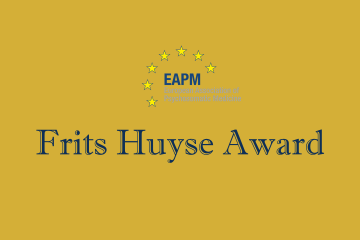
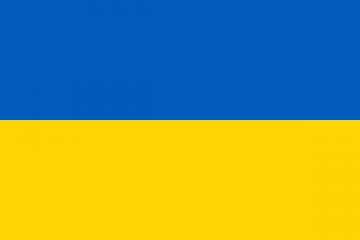
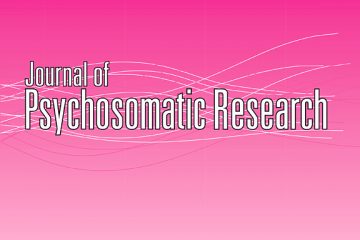
0 Comments